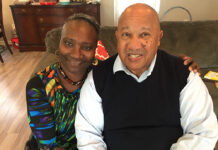From the PITT Substack:
My son announced he was “actually a girl” in the summer of 2021 and I was forced to dive into the deep end of gender world. In that same month, Genspect was founded and PITT was such a baby that I almost dismissed it as a resource. I was barely swimming, but I was at the beginning of the new tide, and I could feel it. Two and half years later, I’m just another ROGD mom of a desisted child—not a feminist anymore, not a liberal any longer, the politically homeless mom whose opinions and attitudes shifted and realigned, just as my world was collapsing.
I’m the type of mom who did all the research; the one who talked about studies and facts; the one who limited internet access and threw myself into getting my son out of the cult. The one who resisted the term “cult” for months, but who also realized that it was, in fact, a cult. With time, patience, connection and facts, I was able to help my son extricate himself. He is confident, outspoken, charismatic, has new friends, and sees himself as a success story—after all, he didn’t fall for the peer pressure. He outgrew his body image issues. Fortunately for us, he only dabbled with gender, but I’m still learning and observing, researching, and asking questions. Before I had kids and became a stay-at-home mom, I graduated with a Masters degree in psychology. The subject of ROGD is fascinating to me.
I was particularly interested in the recently floating idea that some, or even most, ROGD boys might actually be AGP boys, i.e. sexually attracted to themselves as girls or women. If this is true, it follows that they should be taught that they don’t need to medically transition in order to live happily as AGP men.
On the surface this idea seems appealing—boys, if they are, in fact, AGP, can and should avoid hormones and surgeries. However, if we are to agree with the above, we are to agree with the implicit assumption that if boys are not AGP, they might not be able to avoid hormones and surgeries. Not only that but accepting “AGP boys” as a fact, also means that “true-trans boys”, also exist and they are the ones who will benefit from medicalization. If these were not the implicit assumptions, then “early education of AGP boys” would be utterly irrelevant and devoid of meaning—AGP or not, all boys need to be educated on the challenges of adolescence. This would help them see their discomfort as normal, while also learning that porn influences are abnormal and undesirable. They would have an excellent chance of going through adolescence with their bodies intact, their psyches resilient to indoctrination and their mental health improved. After all, the “old cohort” studied by Kenneth Zucker tended to outgrow their gender dysphoria after puberty if left alone, and while there is no research on the ROGD cohort yet, there are plenty of anecdotal reports of desisters and detransitioners. All gender-questioning children, no matter the source of their gender dysphoria, will do best when they are guided to realize that adolescence is physically and emotionally challenging, identity crisis is normal, questioning is normal, and none of their puberty-related discomfort and body image issues mean that they were born in the wrong body or that they were born fetishists who have no opportunities for healthy heterosexual or homosexual relationships as adults.
Second, we then also must agree that AGP is an innate sexuality, and AGP tendencies in boys are unrelated to exposure to porn, grooming by AGP men online, and sexual abuse. However, just a decade ago, any “AGP tendency” in a boy was considered to be a red flag for being sexually abused. When a behavior is maladaptive and the result of abuse or pornography, we have to work in these areas, searching for solutions to resolve the maladaptive patterns, rather than encouraging boys to embrace them.
Third, we also must agree that AGP-like behavioral patterns in boys do, in fact, lead to them having this fetish as adults. Again, there is no research, and casually asserting otherwise is unethical. Besides, children and teens engage in all kinds of stupid, gross, dangerous irresponsible behaviors which do not define their adulthoods. Moreover, many behaviors typical for childhood and adolescent developmental stages do not carry over into adulthood.
Fourth, what are the “AGP patterns” in children and teens? Being sexually aroused while cross-dressing? Stealing underwear? Dressing up in wigs? Violating women’s boundaries? Narcissism? These are behavioral patterns of middle-aged men who are projecting their fetish on teens. It is likely that current-day “AGP patterns” are more related to anime cosplay, but this hasn’t been studied either.
It seems that the “AGP Kid” concept has originated with AGP men, who report that they have memories of themselves fetishizing themselves “as women” by middle school. Let’s keep in mind that, while presumably not all AGP men are manipulators and liars be definitions, those who display their behavior brazenly in public, the ones who are narcissistic enough to seek women’s approval for their presence in contexts where sexual abuse survivor congregate and so on, are likely to be manipulators and liars. I have heard the same argument from adult male groomers who call themselves transwomen and also parroted by pretty much every ROGD teen—the “I have been feeling like this since I was nine” trope.
Interestingly, labeling boys as AGP has been favorably compared to the harm reduction approach to addiction, where the main belief is that it is impossible to be completely drug-free and therefore the best we can do is to aim for safe spaces for using and government-sanctioned drug supply. Unfortunately, this approach has been widely unsuccessful and perpetuates victim mentality. Telling boys that they will always be AGP is similar. Normalizing AGP via educating these boys on paraphilia and fetishes is similarly not a solution.
It is natural for mothers to resist this rising ideology, and we must. Children who are exhibiting “AGP-like” traits should not be labeled “AGP kids,” not even casually, not even in conversations. AGP is a deviant sexual behavior, which tends to be accompanied by other sexual deviances and can escalate. AGP is not to be encouraged, especially not to impressionable, already struggling, often autistic boys. Those who oppose this casual labeling of boys are not all “crazy radical feminists,” and even if they were, they would still be right. Expressing our opinion doesn’t make us bullies. It is perfectly fine to disagree, and not every disagreement is an attack. When we resist, we will be told that we are in denial, unaware, refusing to accept the uncomfortable reality that our children are “actually AGP.” So what? We should keep on talking. Vulnerable boys need mothers on their side more than they need AGP “mentors”. No, the mothers do not have to contend with that!
“AGP kid” is a concept straight out of gender ideology and radical feminism rule book. It is designed to demoralize mothers and pathologize and demonize boys. It is not surprising that those who promote these ideas are also comfortable with citing methodologically weak studies that find that, for example, one out of six males in Australia have predatory pedophilic tendencies. Within this context of predatory men being everywhere, the concept of “AGP boy” is further legitimized.
Being demoralized means losing the ability to distinguish real from fake and true from false without appealing to authority or an expert. When parents are being told that, they not only don’t know their kids but also can’t know their kids, it is the first step of brainwashing. According to Robert Jay Lifton, a psychologist who studied brainwashing and mind control, the first two stages of brainwashing are an assault on identity and shame. While our children are undergoing the process of thought reform online, parents are exposed to the same brainwashing forces by society at large. However, it is even more destabilizing when the assault on identity and shaming come from the sources we have grown to trust, and when conflicting information is presented as facts. Mothers know best, but mothers also don’t know how to parent ROGD kids. Mothers know best, but they are not allowed to think about their child’s potential AGP, as this is incestual and thus shameful. This all leads to weakened beliefs and values, to the feeling of helplessness and to the heightened need to consult with the gurus of the movement.
In the past, the gurus of the movement were WPATH. WPATH started as a safeguarding organization with reasonable gatekeeping and an adult client base. Then the activists took over, and eunuchs, AGPs, pedophiles and porn addicts joined advisory boards. We all know that their most recent Standards of Care didn’t include a section on ethics, but instead suggested a “eunuch” was a legitimate sexuality one is born with and reduced minimal ages for “gender-affirming” surgeries. In this troubling historical context labeling children “AGP” without solid data to support it should be taken as a warning sign. Mothers don’t have to contend with that either!
We have witnessed unbelievable progress in the “gender world” in the last several years. Indeed, no matter how terrified or depressed we at times are, we live during amazing, exciting times. WPATH is about to collapse. Genspect is about to become the new authority on gender care, and so far, we have heard mostly good things from Genspect. PITT grew up in front of our very eyes to become one of the best resources for parents. There are more and more desisters, detransitioners, legal challenges and lawsuits, and even more positive changes are ahead of us. Parents are being listened to! And that’s why we have to keep on speaking.
Notes: definition of demoralization is adapted from James Lindsay’s talk, “How to Stop a Cultural Revolution,” New Discourses, YouTube.
















